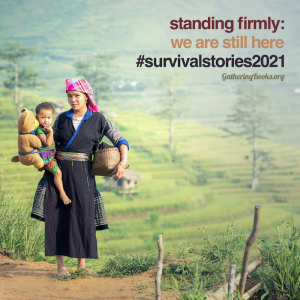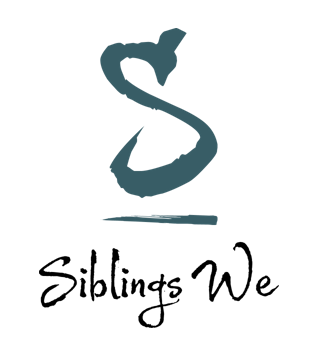
Myra here.
We are delighted to dedicate our Wednesdays to featuring nonfiction titles, as per usual. We would also be linking our nonfiction choices with our reading themes throughout the year, when we can.

We are pleased to launch our quarterly reading theme from April to June this year on Migrants, Exiles, Refugees: Stories Of The Dispossessed. Essentially, we are on the look-out for books with the following themes:
-
Stories of exile and movement from one place to another – either by choice or by circumstance
-
Narratives on im/migrants, belonging and exclusion
-
Tales of people who are in transition and displaced from their homes
-
Stories of seeking refuge and sanctuary and finding forever homes
-
Narratives of loss and dispossession
While this book does not talk explicitly about migrants, exiles, and refugees – it openly discusses race and injustice, prejudice and intolerance – something that most migrants, exiles, refugees experience – and provides young children with tools to navigate around these issues.

Our Skin (Amazon | Book Depository)
Written by Megan Madison and Jessica Ralli Illustrated by Isabel Roxas
Published by Rise x Penguin Workshop (2021)
ISBN: 0593382633 (ISBN13: 9780593382639) Borrowed via Overdrive. Book photos taken by me.
This is an informative, highly accessible nonfiction title that bravely talks about race in a way that may not feel too threatening to most people – yet also openly surfaces inequality and the roots of racism and prejudice.
I especially like the image below, as it highlights the entire gamut of diversity – not just looking at Black or White (which makes me, as a brown person, feel invisible), but the whole range of what it means to be a person of color.

The narrative also examined very briefly – yet pointedly and with such an amazing degree of accuracy – the insidious roots of racism – all spoken in the voice of a child, which reveals even more the absurdity of the notion of eugenics and the feelings of superiority of certain races based on skin color.

It also encourages further research from older readers as to why these ideas have taken root in the first place, and why some people felt justified in mistreating certain groups of people – leading to systemic oppression and racial injustice.

More importantly, the book also empowers young children by making them realize that what they say matters – and that they should use it to speak out against mistreatment and use their voice for social justice. It is clear that the book creators’ background contributed to this deft handling of what could have been a heavy-going issue, made light and manageable with considerable craftsmanship and thought. Megan Madison is a trainer at the Center for Racial Justice in Education, Jessica Ralli is an early literacy program coordinator at Brooklyn Public Library, and Isabel Roxas is a Filipina American artist and indie publisher.
In their Author’s note they talked about how it can be difficult to find the right words to start a conversation about race with children. As they noted, and I quote:
… when we don’t talk about it, children often come to their own conclusions, which can include bias and stereotypes because of the world we live in. Simple conversations can help them make sense of their world and even recognize and speak up about injustice.

While clearly, there is much work that needs to be done – especially in light of the growing hatred against Asian im/migrants because of the pandemic (that seems to mutate at every turn, and fairly insistent on having a life of its own), I am grateful to book creators who write titles like this so that we can begin the difficult work of raising children who are less ignorant and less inclined to hate.

#SurvivalStories2021 Update: 43 out of target 100
May 5, 2021 at 06:31AM Myra Garces-Bacsal


